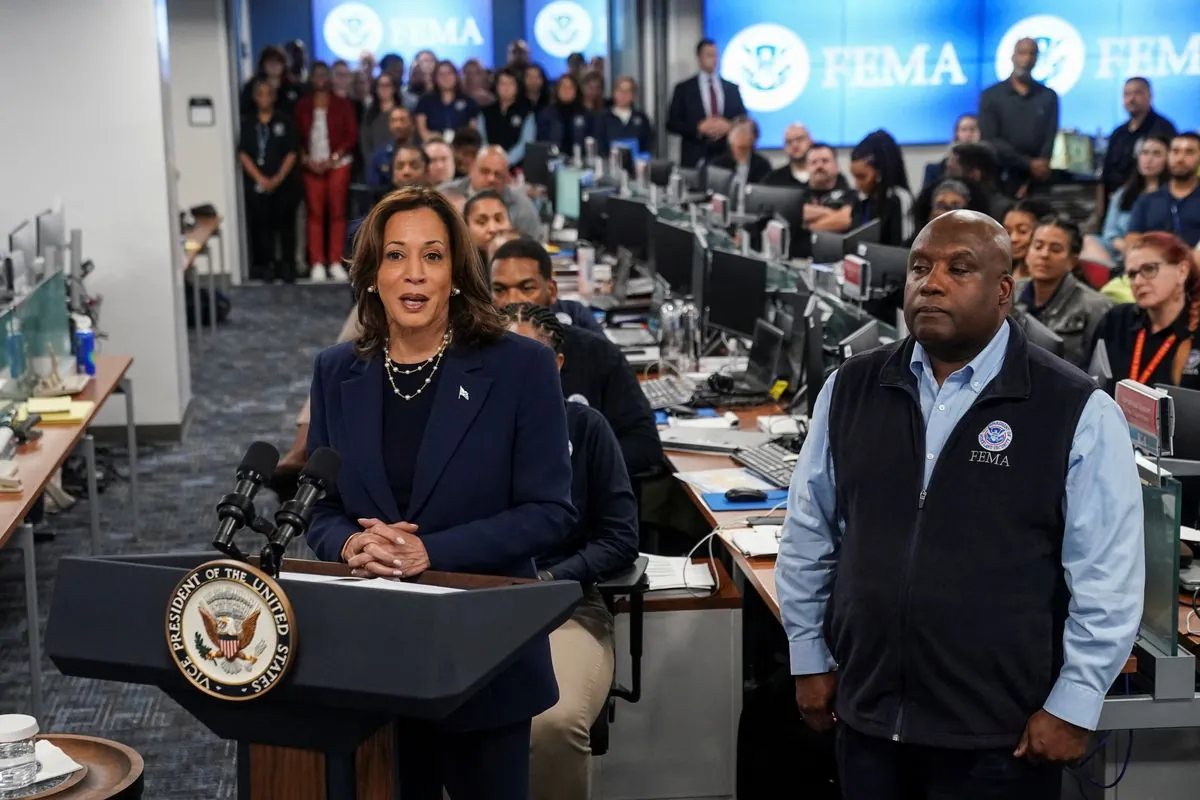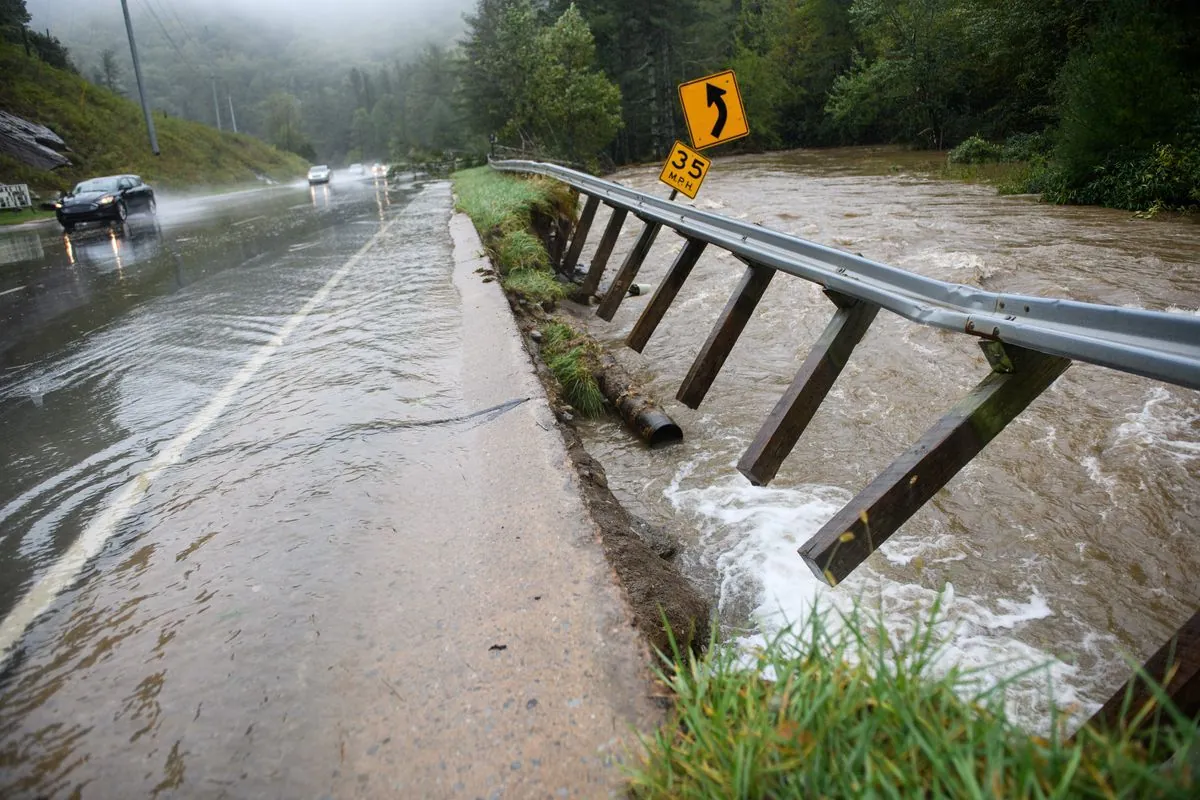VP Harris Visits Hurricane-Hit North Carolina Amid Response Criticism
Vice President Kamala Harris toured North Carolina, meeting with hurricane victims and officials. The administration counters criticism of its storm response as political tensions rise over disaster management.

Vice President Kamala Harris visited North Carolina on October 5, 2024, to assess the aftermath of Hurricane Helene, which made landfall three days earlier. This visit marks her second trip to a storm-affected state in four days, as the administration addresses criticism of its disaster response.
Harris received a briefing at a North Carolina Air National Guard base in Charlotte, alongside state officials. The National Guard, a crucial component in disaster response, has airlifted over 100,000 pounds of food to the most affected areas. This operation exemplifies the vital role the National Guard often plays in hurricane recovery efforts.
"The work that's happening here that is so positively impacting so many people is really an example of the best we can do when we bring resources together at the federal, state and local level — and tap into the kind of collegiality that produces results."
Harris emphasized the importance of cooperation between federal, state, and local authorities in crisis management. This collaborative approach is essential in addressing the multifaceted challenges posed by hurricanes, which can include storm surge, high winds, and inland flooding.
The vice president also met with displaced families and individuals involved in rescue efforts. These personal interactions highlight the human impact of natural disasters and the importance of emergency preparedness, including having evacuation plans and emergency kits.
Hurricane Helene has claimed over 200 lives across six states, with 68 fatalities reported in North Carolina alone. This devastating toll underscores the potential lethality of hurricanes, reminiscent of historical storms like the Great Galveston Hurricane of 1900, which resulted in an estimated 8,000 deaths.

The Federal Emergency Management Agency (FEMA), established in 1979, has been actively involved in the response. The agency has provided more than $26 million in assistance to over 25,000 North Carolina households and deployed over 700 staff members to the area. FEMA's efforts include the distribution of 5.4 million meals and 6.3 million liters of water, demonstrating the scale of resources required in disaster relief operations.
As the Atlantic hurricane season, which officially runs from June 1 to November 30, continues, concerns about future storms and FEMA's funding have emerged. Homeland Security Secretary Alejandro Mayorkas has called for additional congressional funding to prepare for potential hurricanes, with forecasts indicating a major storm may hit Florida's Gulf Coast around October 9-10, 2024.
The disaster response has become a political focal point, with former President Donald Trump making unsubstantiated claims about the administration's handling of the situation. Trump's assertions, including false statements about FEMA funding being diverted to immigration issues, have been refuted by the White House.
As climate change is expected to increase the intensity and frequency of hurricanes, the importance of effective disaster management and accurate public information becomes even more critical. The National Hurricane Center, responsible for tracking and forecasting tropical cyclones, relies on advanced tools like satellites and radar to provide timely and accurate information to the public and decision-makers.
The ongoing situation serves as a reminder of the destructive power of hurricanes and the need for continued improvements in preparedness, response, and recovery efforts. As the 2024 hurricane season progresses, the lessons learned from Hurricane Helene will likely inform future disaster management strategies and policies.


































